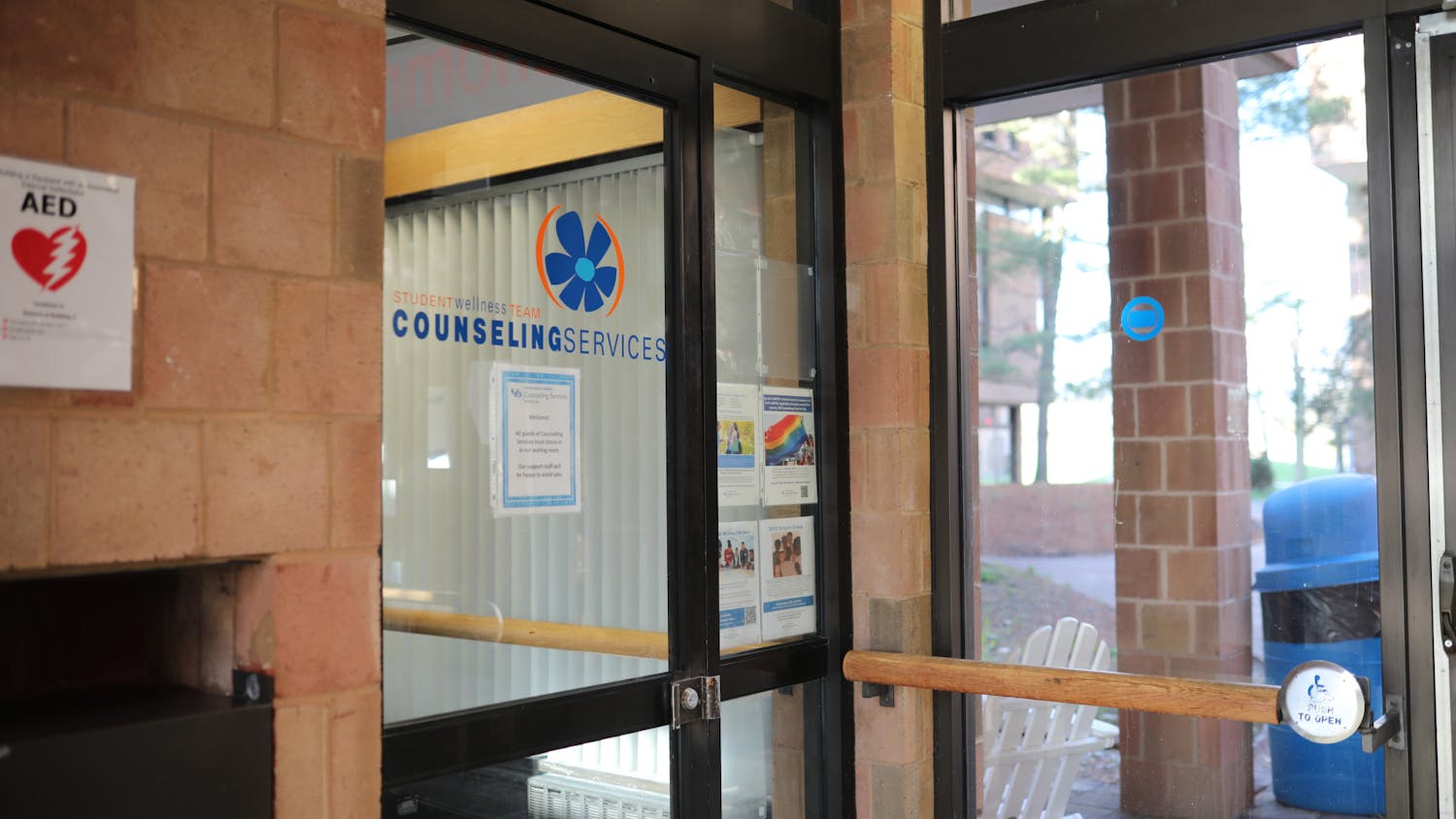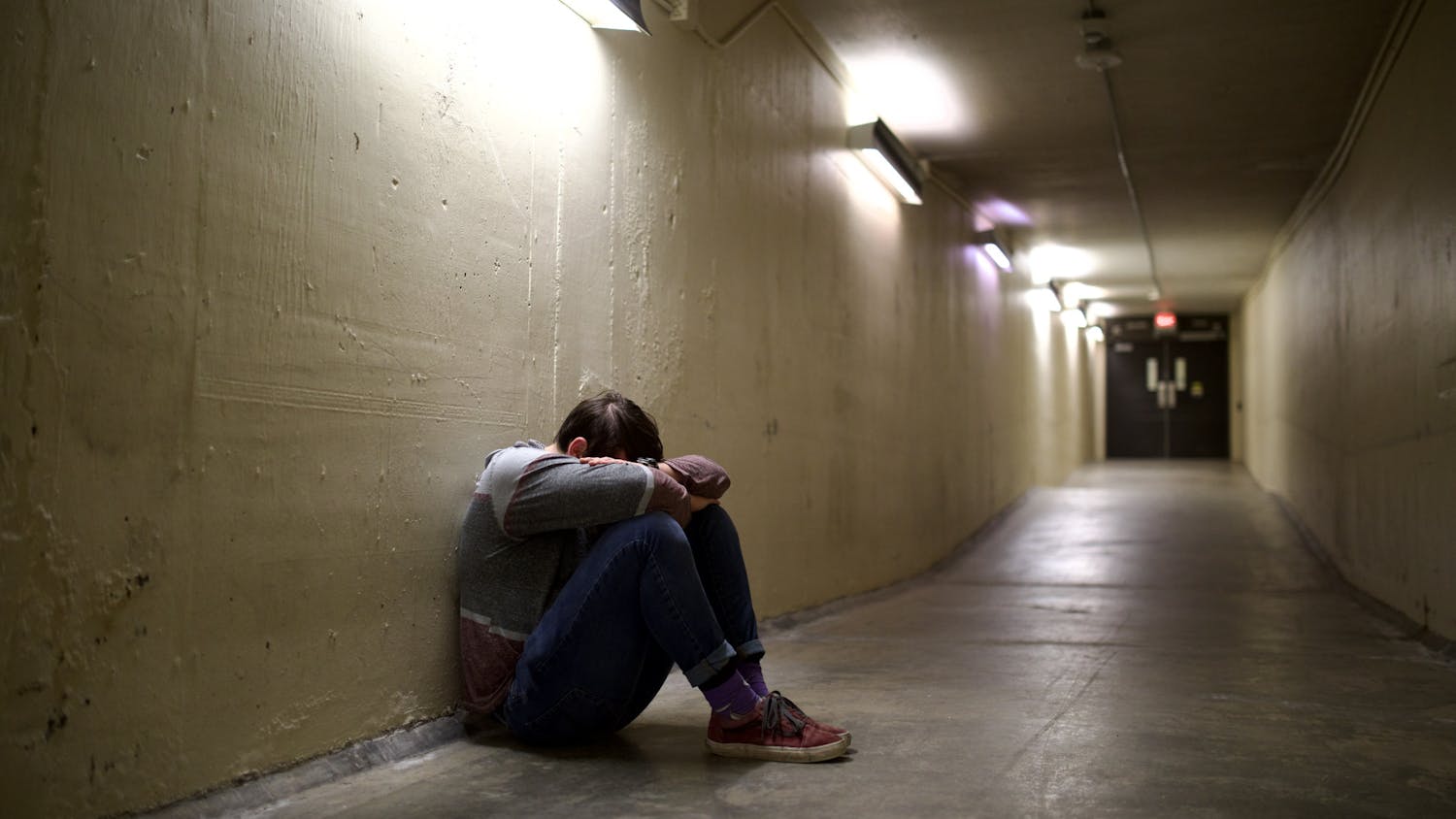The seemingly-inevitable, infamous “freshman 15” is dreaded by first-year college students. Freshmen are warned months before they arrive on campus to watch what they eat, get enough sleep and frequent the gym to ward off extra weight gain.
But where does this weight gain stem from and why is it so prevalent in this select group of students?
“It’s multifactorial,” said Peter Horvath, an associate professor in the Department of Exercise and Nutrition Sciences. “It’s a combination between the availability of food and lifestyle changes.”
Food is only available at certain times at UB, especially for freshman that are typically on a meal plan and utilize meal swipes. Many will skip out on breakfast because it ends too early and then have a small lunch between classes. This leads to most students finding themselves famished by dinnertime – and gorging themselves in the buffet-style dining halls.
Not only are students eating too much for dinner, they’re usually eating it too quickly out of hunger. Students who cannot eat in a timely fashion find themselves gaining weight for this reason.
Some, like Terika Pereira, a sophomore nursing major, will avoid the food on campus because it doesn’t fit her dietary needs.
“I have a lot of health-related issues that cause me to watch my weight. I have to be really careful about gaining weight because it’s really hard for me to lose it,” Pereira said. “They don’t offer many gluten-free options, so now I just bring food from home since I’m a commuter.”
Though the “freshman 15” is more like the freshman five or 10, according to Horvath, this weight gain occurs because it’s difficult for freshmen to adjust to their new lifestyles. Their classes aren’t every day, or are stacked one after another, and there is therefore more opportunity to develop bad habits.
Another factor that is prominent in weight gain is sleep patterns. For those who are living in dorms, the quality of sleep is significantly diminished because freshmen are constantly surrounded by other students with different schedules. This idea is called “disturbed sleep,” in which the sleep that someone receives isn’t as valuable as it could be.
“When people sleep less than six hours or more than nine hours, there’s a tendency to put on body weight,” Horvath said. “Screen time, or time in front of the TV, computer or other electronic device, will also cause the quality of sleeping to be less valuable.”
Though UB offers healthy options, many students will stick to comfort foods, especially when they are under stress. In particular, savory foods like pizza or late night stops at Perks can lead to weight gain because these are less healthy options.
There are dining locations where salads, fruits and other nutrient-filled options are available in both the dorms and on both academic campuses.
But the freshman 15 isn’t necessary inevitable.
“I haven’t gained weight – I actually lost weight,” said Katie Heurman, a sophomore civil engineering major. “But it’s always fun to stalk Facebook and see who’s gained weight after freshman year. It depends on what you choose to eat and whether or not you choose to watch your weight.”
Horvath attributes poor time management to be one of the greatest factors to weight gain. Many students don’t exercise consistently because they aren’t scheduling the time to go to the gym. All of the necessary tools to maintain or lose weigh exist around campus – it’s just a matter of utilizing them.
Time management will now be taught in a first-year UB seminar, taken by freshmen, in an effort to fix this issue.
Those who gain weight freshman year are usually just not aware of their weight as the stress of school and a whole new lifestyle take over.
“You can tell that some people definitely gain weight in their first year,” said Monica Zaso, a sophomore occupational therapy major. “It all depends on what they decide to eat and how conscious you are about your weight.”
Tori Roseman is the senior features editor and can be reached at tori.roseman@ubspectrum.com.





